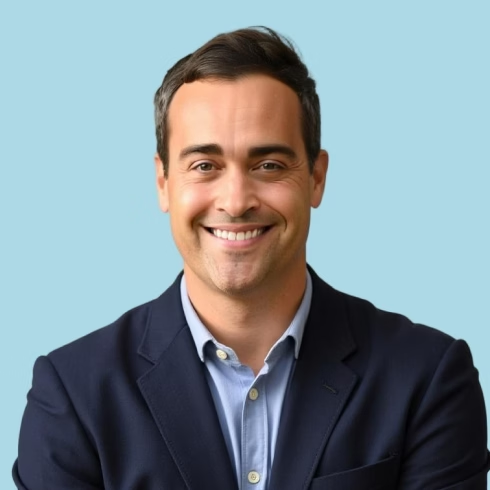AI in the science of life: Powering personalized healthcare for all

.png)
.avif)
Early in my career as a biomedical engineer, I designed an infusion pump with an algorithm to detect air in line, a potentially life-threatening issue in IV therapy. When that pump hit the market, I found myself in the NICU at Beth Israel Deaconess in Boston, staring at a tiny premature infant hooked up to the device I helped create. My heart was a knot of awe, hope for the life we could support, and fear of what could go wrong. That moment never left me.
Today, as the Healthcare and Life Sciences Lead at Launch, I’m driven by that same hope and growing belief that AI and emerging tech can transform care for patients, providers, caregivers and organizations. This is about the science of life: helping people not just survive but thrive. AI is unlocking new ways to see the whole person, not just their symptoms. We’re starting to weave unstructured data and social determinants — like housing, food access, education and social support — into healthcare products, services and interactions. Imagine a system that understands your life’s context, from your neighborhood to your support network, and tailors care to fit you.
Precision medicine has long been skewed toward certain populations, leaving gaps in care for others. AI changes that, designing tests, therapies and experiences that reflect your unique genetic makeup, cultural context and social realities. This is healthcare that prevents crises, not just reacts to them.
AI is shifting how we learn and operate. I used to spend hours poring over medical research for correlations in holistic medicine. Now with GenAI, I can ask what the science says and get answers in minutes. That speed empowers consumers to understand their health, ask better questions and make smarter decisions. We’re just at the beginning of a transformation where everyone gets care designed for who they are.
Empowering individuals with privacy and control
That ICU moment taught me healthcare is about people – their fears, their lives and their trust. For too long, people have guarded their health stories, wary of sharing their age, conditions, medications or mental health struggles. Nobody wants their soul bared to a faceless system. But emerging technologies, edge LLMs — small, private AI models running right on your phone — are shifting the possibilities. These models are private by design, keeping your health data yours, locked safely on your device. No cloud servers, just a digital vault you control. With technology like this you can engage with healthcare apps, services and plans, securely asking questions like “What’s Part D? Is this drug covered? What’s my out-of-pocket cost?”. The answers aren’t just data dumps. They’re context-aware, building your health literacy as you explore products, mental health resources or local services.
Guardrails need to be established, of course. These models are only as good as the data they’re fed. There’s going to be a healthy level of “trust but verify” as we experiment with questions that weave in the messy realities of life — like housing or stress — to make decisions that feel right. The potential? People becoming savvy healthcare consumers, choosing plans and products that fit their needs, driving adoption because they see value. This is the science of life in action: empowering you to thrive.
Empowering caregivers with AI
Growing up, our family doctor wasn’t just a physician, he was family. He knew my mom’s worries, our social dynamics, who the caregivers were and for whom. Back then, we could speak freely about a loved one’s health and leave with guidance that felt like you weren’t alone. That freedom and trust feel lost in today’s fractured system. Caregivers now carry a crushing burden – unpaid, relentless hours supporting loved ones with chronic illnesses, comorbidities or conditions like Alzheimer’s. The emotional and financial toll is staggering. And too often, they’re left searching Google for answers, chasing second opinions on medications, diagnosis or treatments through a maze of digital information and sites.
AI can bring back that family-centered intimacy. Edge LLMs and voice-enabled tools can empower caregivers to act on behalf of loved ones. Imagine a secure portal where a caregiver can ask, “What’s Mom’s next appointment? Is her medication covered?” and get clear, trusted answers drawn from private on-device data.
Or picture an elderly loved one saying, “I’m not sure what to do next” and a voice interface responds “Your appointments Tuesday with Dr. Smith. Want me to share details?”. This is the future potential of emerging tech, to deliver real-time support that saves caregivers time, cuts costs and improves outcomes.
By weaving trusted, context-aware guidance into healthcare apps and services, we’re replacing Google’s chaos with clarity, empowering caregivers to advocate with confidence and individuals to engage proactively.
Restoring trust, easing burdens and helping individuals, families and caregivers thrive together.



